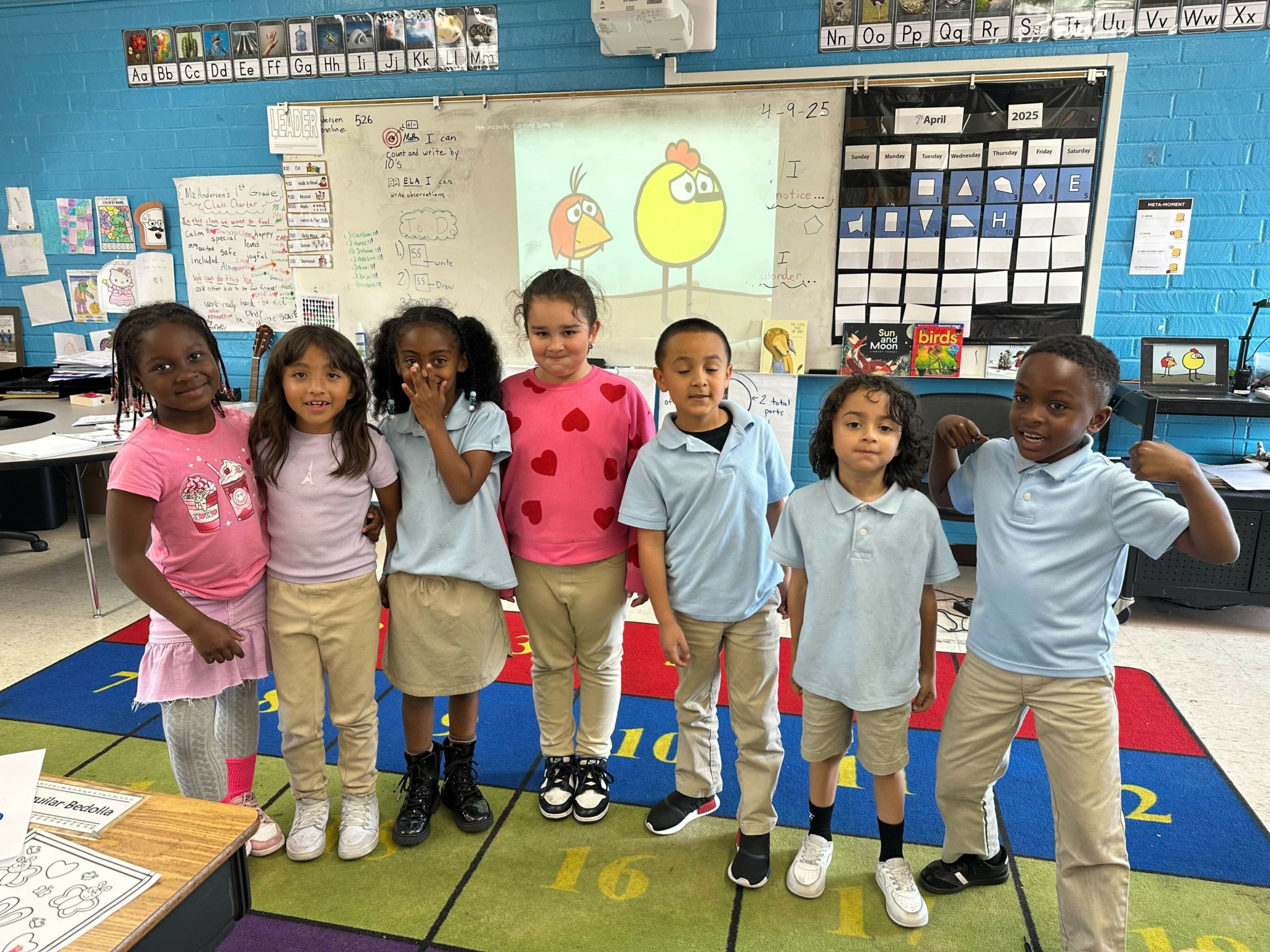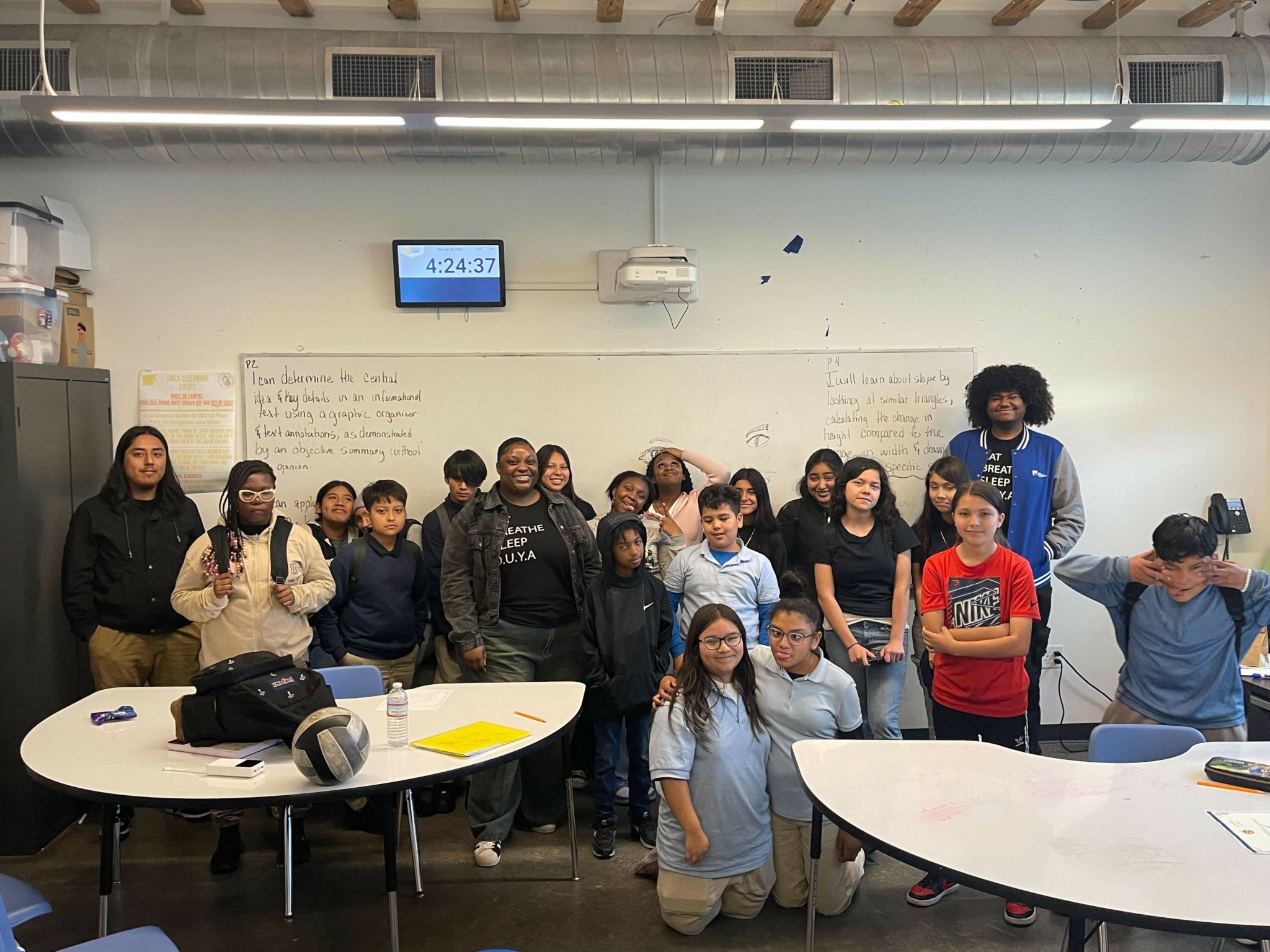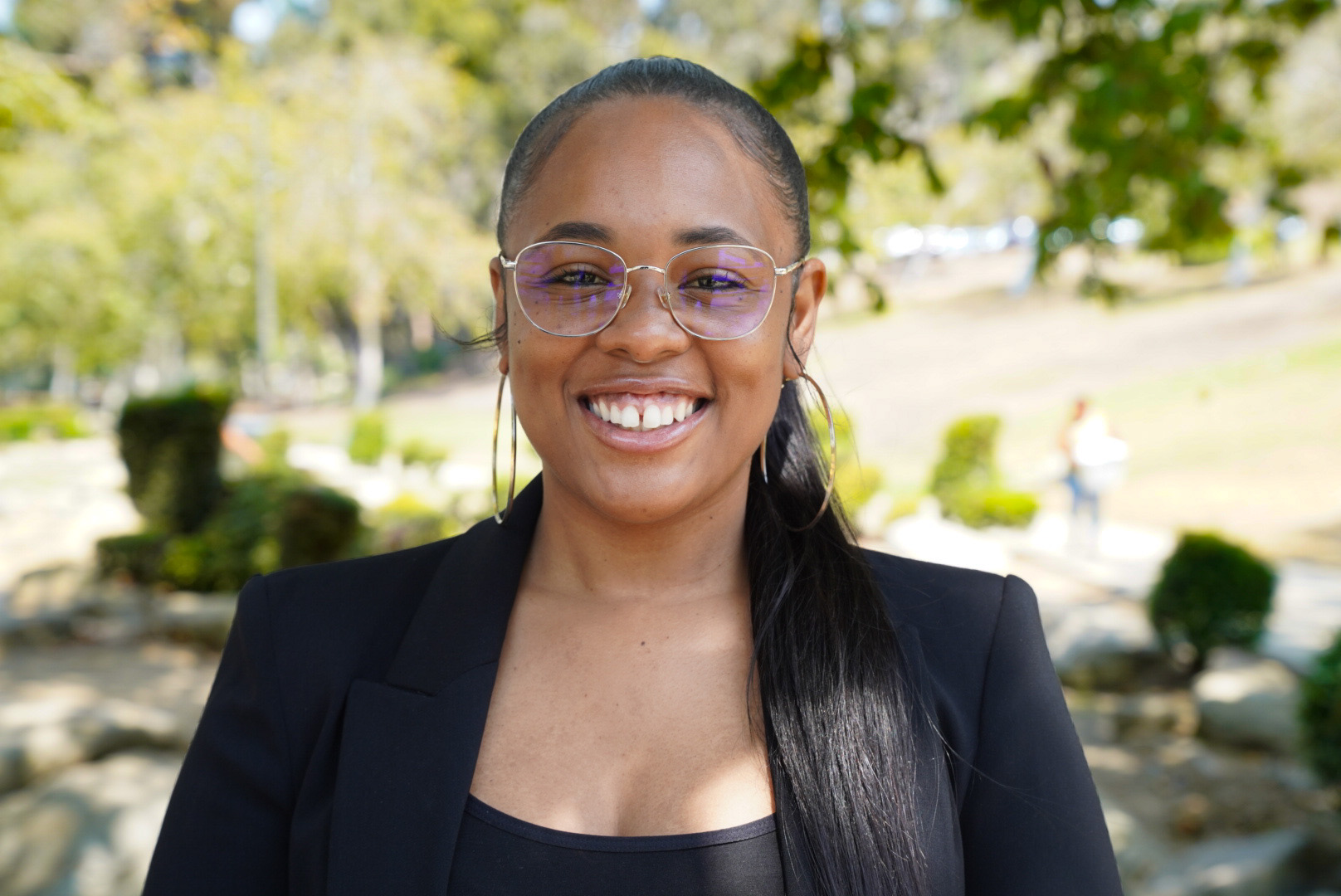We caught up with the brilliant and insightful Dynasty Taylor a few weeks ago and have shared our conversation below.
Dynasty, thanks for joining us, excited to have you contributing your stories and insights. Let’s kick things off with talking about how you serve the underserved, because in our view this is one of the most important things the small business community does for society – by serving those who the giant corporations ignore, small business helps create a more inclusive and just world for all of us.
In the heart of South Los Angeles, where educational equity often feels out of reach, DUYA is rewriting the narrative. Our mission is simple but urgent: to empower underserved youth to rise from poverty to prosperity—and we’re doing it one student, one school, and one breakthrough at a time.
Each year, DUYA serves over 300 students across 9-15 school sites, focusing on Black and Brown youth in grades K–12 who are most at risk of being left behind. These are students who are 1–3 grade levels behind in math and English Language Arts (ELA)—not because of a lack of ability or potential, but due to a systemic lack of access to resources, quality instruction, and consistent support.
We see the impact of these inequities every day. Take Jordan, for example—a bright 6th grader who entered our program reading at a 3rd-grade level. With DUYA’s high-dosage, small-group intervention model, rooted in proven research and trauma-informed practices, Jordan improved by two grade levels in just one semester. Stories like his aren’t the exception—they are the reason we do this work.
Our students come from communities that have historically been under-resourced, overlooked, and underfunded. Many of their families face housing instability, income insecurity, or barriers to accessing consistent educational support. We step into that gap with personalized, data-driven programming that not only accelerates learning but also builds confidence and a sense of belonging.
What sets DUYA apart is our commitment to meeting students where they are—academically and emotionally. We partner closely with schools, families, and local organizations to ensure students are supported in the classroom and beyond. We also engage older youth (ages 21–24) through our new Pathways for Education & Community Leaders apprenticeship program, creating a pipeline of diverse, homegrown educators and mentors who reflect the communities we serve.
The work isn’t easy, but it matters. In neighborhoods where opportunity is too often dictated by zip code, DUYA is creating space for young people to catch up, keep up, and move ahead. Because every child—regardless of race, income, or background—deserves access to a high-quality education and the chance to thrive.

Dynasty, before we move on to more of these sorts of questions, can you take some time to bring our readers up to speed on you and what you do?
DUYA was started because I know what it feels like to fall through the cracks. I grew up in a community where schools were underfunded, resources were scarce, and too often, potential was overlooked. My own educational journey was shaped by navigating instability, watching loved ones struggle, and carrying the weight of responsibilities far beyond my age. I left, learned, and grew—but I always knew I’d come back. Founding DUYA was my way of turning pain into purpose. I created the organization to build what I didn’t have growing up: a system of support for Black and Brown youth, a space where they are seen, celebrated, and set up to succeed. Through high-impact academic programs and leadership development, we’re not just helping students catch up—we’re building a pipeline of empowered leaders rooted in the very communities we come from.
Can you talk to us about how you funded your business?
I started DUYA with nothing but a vision, grit, and deep love for my community. In the beginning, I offered tutoring membership services and ran grassroots, bootstrapped fundraising campaigns—knocking on doors, reaching out to local families, and launching digital campaigns to rally support. I didn’t have access to major donors or big foundations, so I built trust and raised what I could, dollar by dollar. As we grew, I realized the importance of diversifying revenue streams to sustain our work long-term. I taught myself how to write and research grants, reached out to corporate sponsors, and began securing contract work with schools and local agencies, which provided a reliable source of income and helped us scale our impact. This journey taught me that running a nonprofit requires entrepreneurial thinking, relentless creativity, and a deep understanding of how to align passion with sustainable strategy.

How about pivoting – can you share the story of a time you’ve had to pivot?
In 2022, DUYA faced a devastating setback when our membership-based tutoring model collapsed due to the financial strain of the pandemic. With donations dwindling and our ability to sustain operations severely impacted, I was forced to pivot—fast. I shifted our focus from individual tutoring to providing evidence-based academic interventions on a larger scale by partnering with schools and securing grants and contracts. This strategic pivot not only allowed us to continue our mission but also enabled DUYA to expand our reach, serving more students and emerging stronger, with a more sustainable business model in the wake of the crisis.
Contact Info:
- Website: https://dynastysyouth.org/
- Instagram: https://www.instagram.com/dynastysunitedyouthassoc?igshid=16iqe24f8ryj9
- Facebook: https://www.facebook.com/dynastysunitedyouthassoc/
- Linkedin: https://www.linkedin.com/company/61096387/admin/dashboard/


